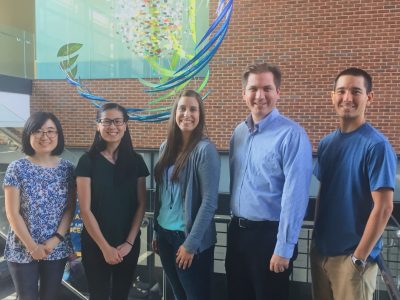
Prospective Students
**2025-26 – Not taking additional students at this time.
Projects
1. Cancer immunotherapeutics
Our work centers on understanding how the human immune system can be harnessed for cancer therapy through integrated analysis of molecular mechanisms and therapeutic strategies. We focus on synthesizing data from the literature and public datasets to identify emerging therapeutic targets and design principles. Areas of interest include immune receptors, adhesion molecules, and metabolic enzymes relevant to cancer immunity.
2. Impact of butyrophilin proteins and their ligands in immunity
T cells play critical roles in cancer immunosurveillance, and butyrophilins represent an emerging family of immune-modulatory molecules. Our group explores how butyrophilin agonists and antagonists influence T cell activation and tumor recognition.
3. Prodrugs and drug conjugates
While many bioactive molecules show potent in vitro activity, their translation to clinical use is limited by pharmacological and delivery challenges. Our current efforts focus on prodrug and drug conjugate design — particularly phosphonate prodrugs — to understand how molecular modifications influence therapeutic behavior and selectivity.
4. Biosynthesis and function of bioactive lipids
Bioactive lipids, including intermediates of the isoprenoid biosynthetic pathway, play essential roles in immune cell function and cancer progression. Our research examines the biochemical logic and regulatory principles underlying lipid biosynthesis and signaling. We aim to clarify how perturbations in isoprenoid metabolism influence immune activation and therapeutic response.
5. Emerging directions
Our current scholarship builds on the group’s foundation in chemical immunology while expanding into integrative, non-experimental areas that bridge molecular mechanisms, therapeutic design, and data-driven analysis. Ongoing and emerging efforts include:
- Conceptual frameworks for molecular glue discovery, drawing inspiration from natural systems to guide the rational design of proximity-inducing small molecules.
- Computational and AI-guided modeling of peptide and small-molecule analogs, leveraging protein language models and cheminformatics to explore therapeutic chemical space.
- Analysis of splice variants and single-nucleotide polymorphisms (SNPs) in immune receptors, aimed at understanding how genetic and transcriptomic diversity alters receptor signaling, ligand recognition, and therapeutic responsiveness.